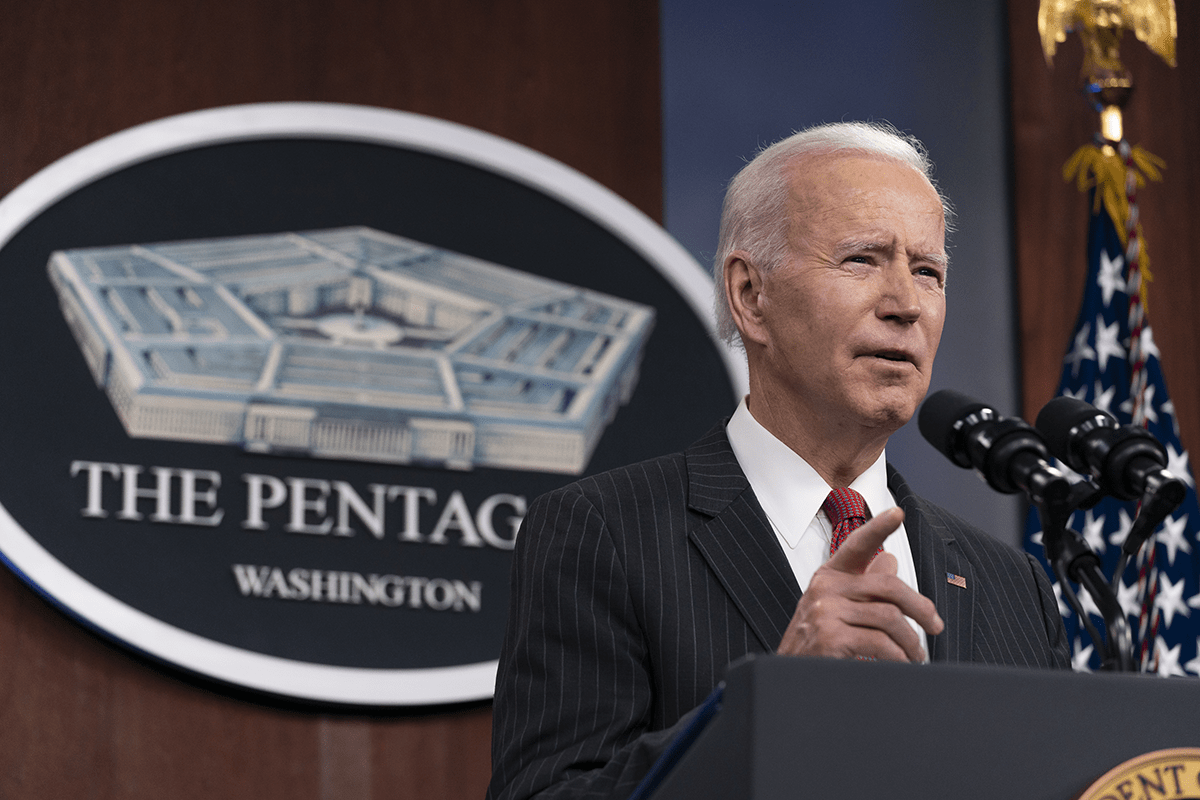
Experts say the White House’s new nuclear strategy is a major missed opportunity to change American policy for the better.
Following months of delays, the Biden administration released its Nuclear Posture Review Thursday. The document declares that “the fundamental role of nuclear weapons is to deter nuclear attack on the United States, our Allies, and partners,” while also stating that America’s nuclear arsenal could be used to deter conventional “attacks that have a strategic effect against the United States or its Allies and partners.”
The policy falls short of what some hoped would be a significant shift to American nuclear posture following President Joe Biden’s statements on the campaign trail, according to Daryl Kimball of the Arms Control Association.
“This broad and ambiguous nuclear weapons declaratory policy walks back President Biden’s earlier position and pledge to narrow the role of U.S. nuclear weapons,” Kimball said in a statement, adding that “policies that threaten the first use of nuclear weapons” carry “unacceptable risks.”
The policy document’s release comes amid a spike in concern about the potential for nuclear war. Notably, Russian President Vladimir Putin has suggested on multiple occasions that he would use nuclear weapons in order to “defend” territory that he has attempted to wrest from Ukraine, and the United States reportedly plans to move a more accurate version of its primary nuclear weapon to Europe.
During a press conference Thursday, Secretary of Defense Lloyd Austin emphasized the importance of maintaining open channels of communication with Moscow in order to avoid escalation.
“As long as we have the channels of communication open, and we’re able to communicate what’s important to us, then I think we have an opportunity to manage escalation,” Austin said.
In the spirit of de-escalation, the new posture review also called for efforts to eliminate nuclear weapons in the long term and expressed Biden’s desire to end a submarine-launched tactical nuke program, which Kimball called a “destabilizing and very expensive new capability.”
However, the document also endorses the multi-trillion dollar plan to modernize America’s nuclear arsenal and maintains a different tactical nuclear program, a pair of moves that “carry the seeds of a new nuclear arms race,” according to Bill Hartung of the Quincy Institute.
“The current U.S. arsenal is more than sufficient to deter any nation from attacking the United States,” Hartung said. “Building more nuclear weapons is both excessive and dangerous.”
Source: Responsible Statecraft




